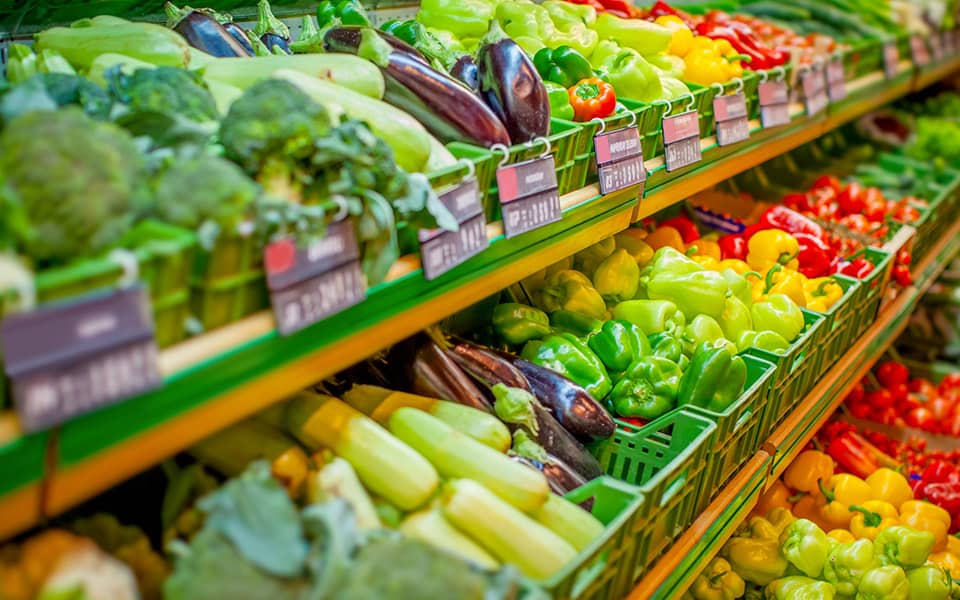Earth Day 2021: Partnering With Stakeholders for a Greener Future

*On June 1, 2023 Emerson’s Climate Technologies business became a new standalone company – Copeland. Though our name has changed, we are building on more than a century of HVACR innovation and industry leadership, and Copeland continues to offer the same products, industry stewardship, and learning opportunities you’ve grown to trust. Information found on this webpage posted before June 1, 2023 may contain our old name or branding, but you can be at ease knowing it was created with the knowledge and expertise of Copeland.
On this Earth Day (Thursday, April 22), more than a billion people around the globe will take stock of the planet’s health and the actions we all can do to protect the environment.

This year’s theme is “Restore Our Earth”. At Emerson, we see this as a call to action that we simply cannot ignore. Climate change and resource conservation are among the most pressing challenges facing our planet. According to NASA, Earth’s global average surface temperature in 2020 tied with 2016 as the warmest year on record. It is just one of many data points that show we have work to do to reverse a long-term warming trend.
The commercial refrigeration sector has been focused on mitigating climate change for decades. The Montreal Protocol, ratified in 1987, resulted in a successful effort to ban refrigerants with ozone depletion potential (ODP). In 2019, the Kigali Amendment to the Montreal Protocol created a framework for phasing down the use of hydrofluorocarbon (HFC) refrigerants with high global warming potential (GWP).
However, phasing down high-GWP refrigerants is not enough to halt climate change on its own. We must also consider the total equivalent warming impact (TEWI) of commercial refrigeration systems — which takes into account direct emissions and the energy required to run these systems.
Emerson is committed to helping our customers to understand, navigate and comply with environmental and regulatory challenges. By providing solutions and guidance that promote sustainability and conservation, we are partners in the race to reduce commercial refrigeration’s TEWI.
Committed to global sustainability initiatives
At Emerson, we share a unified purpose to drive innovation that makes the world healthier, safer, smarter and more sustainable. Our planet is among the five causes supported by this important initiative, which drives us to deliver sustainable solutions that improve efficiency, reduce emissions, and conserve resources.
Around the world, we have intensified our efforts to be more efficient in our energy usage and reduce the intensity of our greenhouse gas (GHG) emissions. But we know that’s not enough. Sustainability measures have a greater impact when they are part of a team effort. To that end, we have established an environmental sustainability framework that reflects our drive to be a partner for change. This “greening” framework defines our environmental initiatives according to three categories:
-
- Greening OF — driving down our GHG emissions intensity by 20 percent by 2028
- Greening BY — providing products, solutions and services to help our customers transition to a low-carbon future
- Greening WITH — engaging with external stakeholders to develop innovative solutions and shape future policy
In short, we are continually innovating and fine-tuning technologies, tools and insights to help operators and businesses meet their own environmental, social and governance initiatives.
For example, consider our efforts in the cold chain. Using technology and data-driven insights, cold chain stakeholders can create greater temperature stability and certainty. This, in turn, can curb energy usage and reduce waste at every step along the journey from farm to consumer and beyond. Our cold chain solutions encompass an ever-widening scope:
-
- Managing refrigeration — Continuing advances in refrigeration technology, monitoring and controls help operators to maintain proper temperatures, comply with food safety regulations and reduce spoilage.
- Optimizing facilities and reducing energy — A commercial refrigeration system accounts for 40 to 60 percent of total electricity consumption in supermarkets. Advanced asset management solutions enable operators to optimize refrigeration, HVAC and lighting systems for greater facility and enterprise-wide energy efficiency.
- Reducing food waste — End-to-end cold chain solutions help ensure refrigeration reliability via equipment, systems and monitoring technologies to extend shelf life and prevent waste.
- Converting waste to energy — Food recycling turns wasted food into an energy-rich slurry that can be used for energy production.
- Electrifying the supply chain — Replacing diesel-powered refrigerated transport systems with environmentally friendly electric solutions.
- Renewing energy — Explore technologies to capture biogas from landfills and transform it into renewable energy.
When component manufacturers, original equipment manufacturers (OEMs), contractors and end users collaborate to develop ambitious solutions, everyone — including the planet — benefits.
Lower-GWP refrigerants continue to factor into sustainability plans
Advanced refrigeration technologies and new architecture strategies are providing operators with greater control over TEWI. However, in the quest for greener refrigeration, refrigerants still take center stage. Global policy and state and new federal rulemaking, including the American Innovation and Manufacturing Act of 2020 (AIM Act), reassert our country’s commitment to phase down HFC refrigerants.
Many retailers and restaurants are leading the way in exploring low-GWP refrigerant options. For some, this means retrofitting existing refrigeration architectures to transition to lower-GWP A1 refrigerants, such as R-448A/R-449A. Others are diving in by adopting greener options, such as R-290 integrated cases and CO2 transcritical and/or cascade systems.
Whether you’re looking to transition to lower-GWP refrigerants or lessen your TEWI, Emerson has the products and resources to support your goals. Our solutions can help you to optimize your facility operations, reduce energy use, minimize equipment failures, improve food quality and safety, and achieve regulatory compliance. Together, we can restore our planet for a better future.
Protection for high-value shipments just got even better
by Alex Axelsson | Cold Chain, Transportation
We’re excited to announce the release of Copeland’s newest real-time tracker, the GO Real-Time...

Three proven strategies to prevent cargo theft
by Chris Lafferty | Cold Chain, Transportation
The over-the-road (OTR) transport industry is experiencing a surge in cargo thefts. As thieves...

Four Keys to Successful Cold Chain Shipping
by Michelle Rodriguez | Cold Chain
Temperature management best practices for maximizing perishable food quality and safety When...
The post Earth Day 2021: Partnering With Stakeholders for a Greener Future appeared first on Copeland.